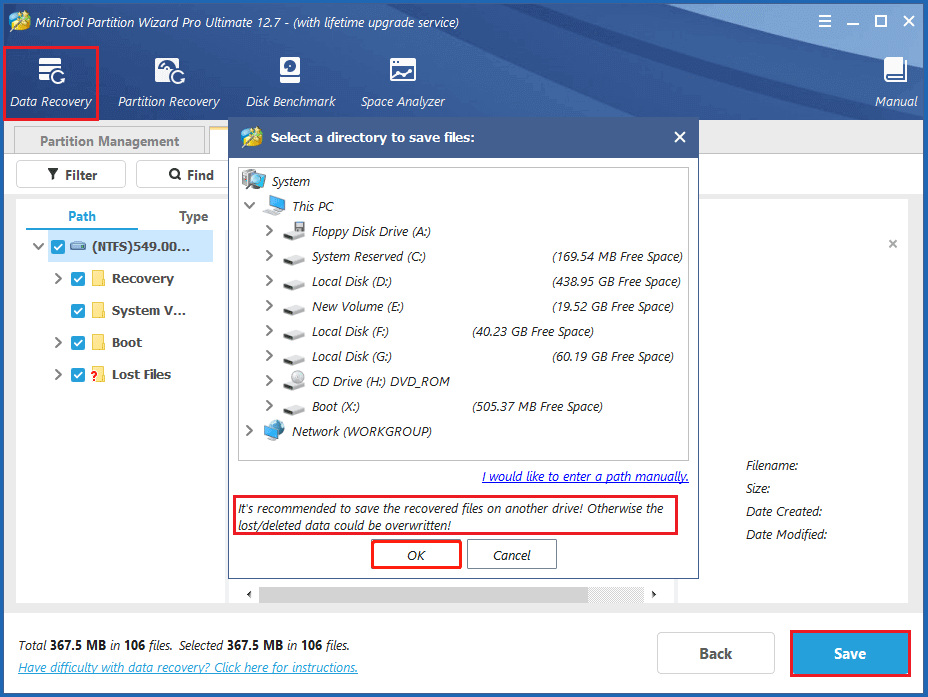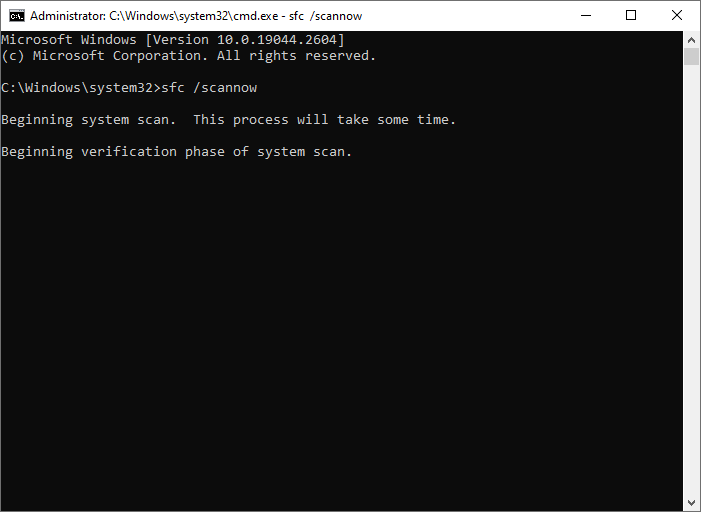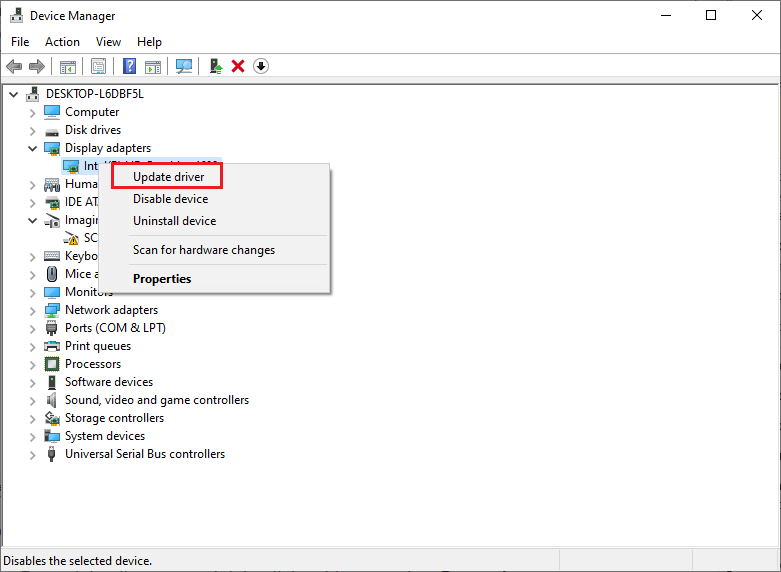The 0x0000000C error, also known as MAXIMUM_WAIT_OBJECTS_EXCEEDED, indicates that the system has exceeded the maximum number of wait objects. The system has a limit on the number of wait objects that can be created and used at any given time.
What Causes 0x0000000C BSOD
The MAXIMUM_WAIT_OBJECTS_EXCEEDED BSOD can be caused by various factors. Some possible reasons are:
- Corrupted or missing system files
- Hardware failure
- Malware infection
- Outdated or incompatible device drivers
- Registry errors
- …
This BSOD error may cause a system restart or shutdown, data loss or corruption, system performance issues, etc. How to fix the 0x0000000C error? You can boot your PC into Safe Mode and then try the following solutions.
Method 1. Recover Data
Before fixing the MAXIMUM_WAIT_OBJECTS_EXCEEDED BSOD, you should recover and back up data to avoid data loss caused by system crashes or later fixes. How to quickly recover data on your PC?
You can use MiniTool Partition Wizard, a powerful data recovery tool that can help you recover various files from your hard drives. In addition, it allows you to recover partitions, migrate OS to another disk, copy partitions and disks, check the hard drive, etc.
MiniTool Partition Wizard DemoClick to Download100%Clean & Safe
- On the main interface of MiniTool Partition Wizard, click Data Recovery on the toolbar.
- Then select a partition to scan for lost files and wait for the process to complete.
- Once done, select all the files that you want to recover and click Save.
- In the pop-up window, choose another hard drive to save the recovered data and click OK.

Method 2. Run SFC and DISM
The 0x0000000C error can be caused by corrupted system files. You can run SFC and DISM scans to check and repair corrupted or missing system files. Here are the steps to run them:
Step 1. Press Windows + R to open the Run box. Then type cmd and press Ctrl + Shift + Enter to run Command Prompt as administrator.
Step 2. Then type sfc /scannow and press Enter.

Step 3. After the scan finishes, reboot your device. If the error still exists, run Command Prompt as administrator again.
Step 4. Then type the following command and press Enter.
DISM /Online /Cleanup-Image /RestoreHealth
Step 5. Once the process is done, restart your PC and check if the error is resolved.
Method 3. Update Your Drivers
If your device drivers are outdated, they can cause various BSOD errors, including MAXIMUM_WAIT_OBJECTS_EXCEEDED. To update your device drivers, follow these steps:
Step 1. Right-click the Start buttonand select Device Manager.
Step 2. In the pop-up window, expand the category of the device that you want to update.
Step 3. Right-click the device and select Update driver.

Step 4. In the next window, choose Search automatically for drivers and follow the on-screen instructions to install the latest drivers for your device.
Step 5. Once done, restart your computer and check if the issue is fixed.
Method 4. Check Your Hardware for Errors
The MAXIMUM_WAIT_OBJECTS_EXCEEDED BSOD can be caused by hardware failure. To check your hardware for errors, you can use Windows Memory Diagnostic to test your RAM for errors and MiniTool Partition Wizard to check your hard disk for errors.
MiniTool Partition Wizard FreeClick to Download100%Clean & Safe
Method 5. Scan Your PC for Malware
The MAXIMUM_WAIT_OBJECTS_EXCEEDED BSOD can be caused by malware infection. To scan your PC for malware, you can use Windows Defender or third-party antivirus software. Here is how to scan your PC with Windows Defender:
Step 1. Go to Settings > Update & Security > Windows Security > Virus & threat protection.
Step 2. In the prompted window, click Scan options. Then select Full scan and click Scan now.
Step 3. Wait for the scan to complete and remove any threats it finds. Once done, reboot your PC and check if the error is resolved.
In addition to the above methods, you can try restoring your Windows to a previous state to fix the 0x0000000C error.
Conclusion
Now, this post comes to an end. Do you have any suggestions or other nice solutions to the stop code 0x0000000C? You can feel free to leave a message in the comment part below.

User Comments :